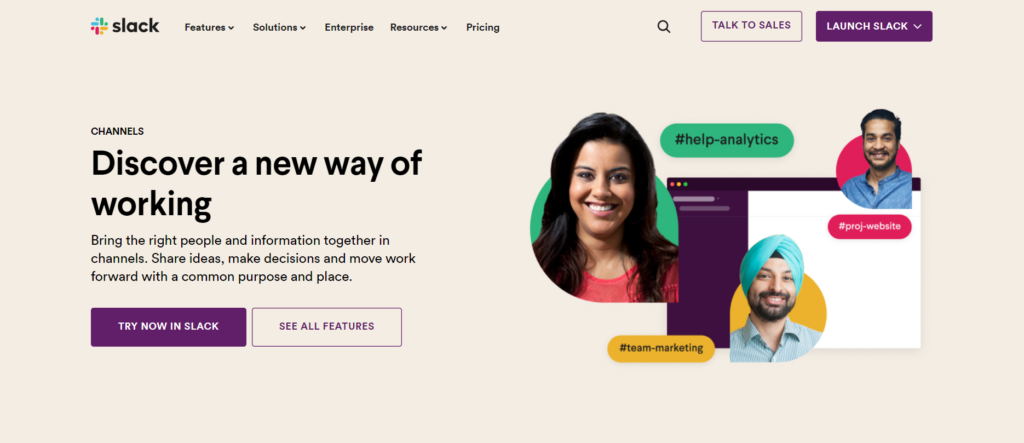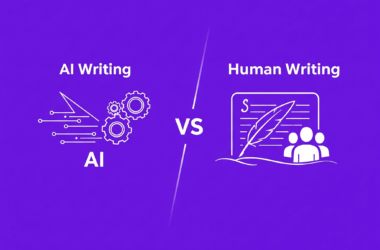Table of Contents
Ever wondered what makes the business world spin? It’s not just about having the most eye-catching product or the loudest ads anymore. It’s the magic of B2B marketing that’s stealing the show.
Guess what? Studies show that almost 71% of B2B marketers caught on to the growing significance of content marketing in 2022. But here’s the plot twist – only 29% of organizations feel like they’ve nailed the content marketing game.
Now, that gap might seem a bit intimidating, but here’s the catch: there are some pretty awesome success stories out there that go against the odds.
In this post, we’re exploring 14 examples that don’t just get the importance of content marketing but also excel at it.
Ready for a dose of inspiration? Read on!
14 Best B2B Content Marketing Examples
B2B content marketing is a strategic approach that focuses on creating and sharing valuable, relevant, and consistent content to attract and retain a clearly defined audience — and, ultimately, to drive profitable customer action.
B2B content marketing strategies not only attract buyers but also help brands establish lasting connections that extend far beyond a transaction.
Here are 14 best B2B content marketing examples and success stories that showcase how these strategies effectively engage and build lasting relationships with business clients:
- Asana
With a strategic focus on welcoming new users, Asana utilizes email marketing as a key component of their approach.
When someone signs up, Asana doesn’t just say ‘hi’ – they give them the full tour of what the platform can do. And the best part? They offer a 30-day free trial, which is like giving new users VIP treatment from day one.
This personalized outreach includes a 30-day free trial, essentially rolling out the red carpet for users as if they were VIP guests.
The platform’s distinction is further highlighted by its impressive clientele, boasting reputable names such as Google, Amazon, Vodafone, Spotify, and Suzuki. The fact that these industry giants entrust Asana for their work management speaks volumes about the platform’s reliability and effectiveness.
- IBM
IBM stands as a giant in the tech industry, not just for its products but also for its innovative content marketing strategies. They’re not just throwing ads out there; they create content that actually teaches and builds trust. Like, they’re a go-to source for tech knowledge.
Take their “Smarter Planet” initiative, for instance. They combined insightful articles, social media, and engaging videos to discuss how technology can be used to address complex societal issues. It wasn’t just a marketing stunt – it really put IBM in the spotlight as a leader in solving global challenges.
In 2010 alone, this campaign brought over 3 billion dollars and sparked a huge growth in their business, with thousands of new clients. It’s like IBM showed the world they’re not just tech geeks; they genuinely care about making a difference.
- Google Workspace
Google Workspace has emerged as a collaboration powerhouse, and their content marketing game is no exception. What sets them apart is their user-centric approach and a clever strategy to reward users who spread the word about their tools.
Google Workspace understands the value of word-of-mouth marketing. They’ve created a referral program that not only encourages users to recommend their tools to newbies but also rewards them for doing so. It’s like earning extra credit for spreading the word.
With this program, users can earn up to USD17 per recommendation. This approach not only helps in expanding their user base but also creates a sense of community around their products. Users feel appreciated and motivated to share their positive experiences, creating a ripple effect of recommendations.
- YouGov
YouGov is a UK-based analytics firm that specializes in market research and public opinion polling.
Their strategy typically involves gathering data from a large panel of participants who have signed up to take part in surveys. These participants are selected to be representative of the population, allowing YouGov to provide insights that are reflective of broader public opinion or consumer trends.
The data collected is then analyzed and used to generate reports and insights that are valuable for businesses, governments, and other organizations. And, by keeping up with the latest hot topics, they’re not just staying relevant; they’re also building trust with their clients who depend on this kind of data to make big decisions.
- Slack

Slack is a widely used business communication platform known for its efficiency in facilitating team collaboration. Their big sell? They’re all about making work conversations smoother and getting rid of that dreaded email clutter.
The platform’s success is underlined by impressive growth metrics: a 30% increase in usage and an 80% rise in daily messages sent. This growth signifies more than just rising popularity; it reflects Slack’s effectiveness in meeting the evolving communication needs of modern businesses.
Slack’s prime marketing strategy involves targeting businesses with the promise of streamlined communication and enhanced productivity.
Key to this strategy is the emphasis on Slack’s ability to centralize workplace communication, reduce email overload, and integrate seamlessly with a multitude of other business tools and applications.
This strategy has been conveyed through various channels, including targeted online advertising, social media campaigns, and content marketing through blogs, and so on.
- Zoom
Zoom, a leading video conferencing platform, has seen remarkable success and widespread adoption in both the business world and personal communication, particularly highlighted by its surge in popularity during the COVID-19 pandemic.
The cool part about Zoom’s success story? They had this massive growth spurt, like 418% in just a couple of months. That’s huge! Their marketing magic? They really focused on showing off how easy and reliable Zoom is for video calls. It’s like, no matter who you are – a big company, a small team, or just someone wanting to catch up with friends – Zoom’s got you covered.
Emphasizing its intuitive design, Zoom appeals to a broad user base, from businesses to individual users. And it plays well with other apps too, which is super handy. They’ve been smart about spreading the word, making sure everyone knows just how user-friendly and versatile Zoom is.
- Airbnb
Established in 2008, They totally flipped the script on how we look at travel stays. But it’s not just their cool platform that’s got everyone talking; it’s also how they get the word out with some really smart content marketing.
One such strategy is their collaboration with Domino, a design expert, to create an engaging quiz for their users. This quiz, which helps users find their “dream vacation home” based on their preferences, not only increases user engagement but also cleverly showcases the wide variety of unique listings available on Airbnb.
This marketing effort helped Airbnb stand out in a crowded market by not just offering a service, but also an experience. It’s a perfect blend of fun, engagement, and practical utility, which resonates well with their target audience.
- Adobe Software
Adobe Software’s content marketing strategy goes beyond traditional methods. A notable example is their partnership with the Sundance Film Festival, where Adobe became the official editing platform. This collaboration not only boosted Adobe’s visibility in the creative industry but also established it as a preferred tool among professionals.
By linking up with such a big deal in the film world, Adobe tapped into the heart of storytelling and artistry. It’s a powerful message: they’re not just selling software; they’re fueling creativity and innovation.
- Glassdoor
Glassdoor is a unique example in the realm of B2B content marketing, primarily because its entire platform is content-centric. Known for its employee reviews, salary data, and company insights, Glassdoor has built a brand synonymous with workplace transparency and career insights.
Their content marketing strategy is multifaceted. It involves not just providing a platform for employee reviews, but also publishing insightful articles, salary reports, and industry trend analyses. These resources are invaluable for both job seekers and employers, making Glassdoor a go-to destination for career-related information.
One of the key successes of Glassdoor’s content strategy is its ability to engage both sides of the job market. For job seekers, it offers a window into company cultures and salary expectations. For employers, it provides an avenue to build their brand reputation and attract top talent. This dual approach helps Glassdoor cater to a wide range of users, establishing it as a leader in the employment information sector.
- Lincoln Electric
Lincoln Electric, a global leader in welding products, showcases their expertise through targeted content marketing. Their strategy is particularly effective on platforms like LinkedIn, where they connect with industry professionals and decision-makers.
Their content typically involves detailed insights into welding technology, industry trends, and product innovations. This approach not only reinforces their position as industry leaders but also fosters trust and credibility among their B2B audience.
For instance, Lincoln Electric, in collaboration with BusinessOnline, revolutionized its content marketing strategy by implementing HubSpot’s marketing automation. It led to a 923% increase in Marketing Qualified Leads (MQLs) and a 550% higher conversion rate through media efforts compared to direct traffic.
This multi-channel approach, focusing on myth-busting about welding automation and tailored messaging, resulted in a net gain of $3M from new customers and a 600% increase in ROI, showcasing a highly effective strategy in a traditionally offline-dominated industry.
- Maersk
As a global container logistics company, Maersk’s content marketing shines on LinkedIn and other social media platforms. They share insights and stories that resonate with their audience, including updates on global logistics, sustainability efforts, and corporate news.
This strategy helps Maersk stay connected with their audience, building a brand image that goes beyond just logistics services. It positions them as a thought leader in the industry, engaged with global issues and committed to transparency and innovation.
The impact of their content marketing is marked by their impressive operational scale. As of 2022, Maersk held a significant position in the global market, operating 15.3% of the world’s container ship fleet. By May 2023, their fleet had grown to 682 container ships with a total capacity of around 4.13 million TEUs.
These figures are not just numbers; they reflect Maersk’s substantial presence and influence in the global logistics scene, highlighting the effectiveness of their content marketing in building a brand that’s recognized and respected worldwide.
- Cisco
The effectiveness of Cisco’s content strategy is mirrored in its robust financial performance. The company boasts annual revenues of around 50 billion U.S. dollars, alongside a net income exceeding 10 billion U.S. dollars in recent years.
This technology giant utilizes YouTube and social media to disseminate content that showcases their technological advancements and industry leadership. Their content strategy includes informative videos, interviews, and insights into tech trends.
This approach helps Cisco maintain its position as a leading authority in technology, engaging with a diverse audience ranging from tech enthusiasts to industry professionals.
- Chainlink
Chainlink uses a mix of videos, infographics, and visuals to make complex topics accessible to a broader audience. This strategy helps them demystify their offerings and communicate their value proposition effectively.
Their content not only educates but also engages, making it easier for their audience to understand and appreciate the nuances of their technology.
- Kinsta
Kinsta, a renowned player in the web hosting industry, has established itself as a leader through a unique and effective content marketing strategy.
Their approach is particularly distinguished by their focus on SEO and what’s known as “error message marketing.” This innovative strategy involves creating content that specifically addresses common errors and issues encountered by users, thereby attracting traffic through search queries related to these problems.
By providing solutions to these common errors, Kinsta not only drives significant traffic to its site but also establishes itself as an authoritative and helpful resource in the web hosting community. This approach is a clever twist on traditional SEO tactics, targeting specific, often-searched queries and offering valuable content in response.
Key Takeaway
Your venture into B2B content marketing is more than a mere strategy; it’s an opportunity to innovate, connect, and grow in ways beyond conventional boundaries.
Remember, the future of B2B content marketing is not limited to reaching your audience; it’s about engaging a community, and your story could be the next to lead the way.
So, go ahead and write your own success story – the world is waiting to hear it!
FAQs
- What are the best B2B content writing examples?
The best B2B content writing examples often include in-depth whitepapers, thought leadership articles, comprehensive case studies, and industry-specific blog posts. Companies like HubSpot, Salesforce, and LinkedIn are notable for their compelling B2B content that combines expertise with engaging storytelling.
- What are the examples of content marketing on social media?
Content marketing on social media can range from educational infographics on LinkedIn, interactive polls on Twitter, and informative video content on YouTube to behind-the-scenes stories on Instagram.
Brands like Adobe and Cisco Systems excel in utilizing social media platforms to share valuable content tailored to their B2B audiences.
- How can storytelling be utilized in B2B content marketing?
Storytelling in B2B content marketing can be utilized by sharing customer success stories, illustrating the journey of product development, or presenting company milestones. It’s about crafting narratives that resonate with the target audience, demonstrating real-life applications and benefits of products or services.
- What are the best practices for implementing B2B content marketing strategies?
Best practices include understanding your audience, creating a content calendar, focusing on quality over quantity, utilizing SEO techniques, and incorporating a mix of formats such as blogs, videos, and podcasts. Regularly analyzing performance metrics and adapting strategies accordingly is also crucial.
- How can B2B content marketing success be measured?
Success can be measured through various metrics such as website traffic, lead generation, engagement rates on social media, content download numbers, and conversion rates.
Tools like Google Analytics, social media analytics, and CRM systems can provide valuable insights into the effectiveness of content marketing efforts.








